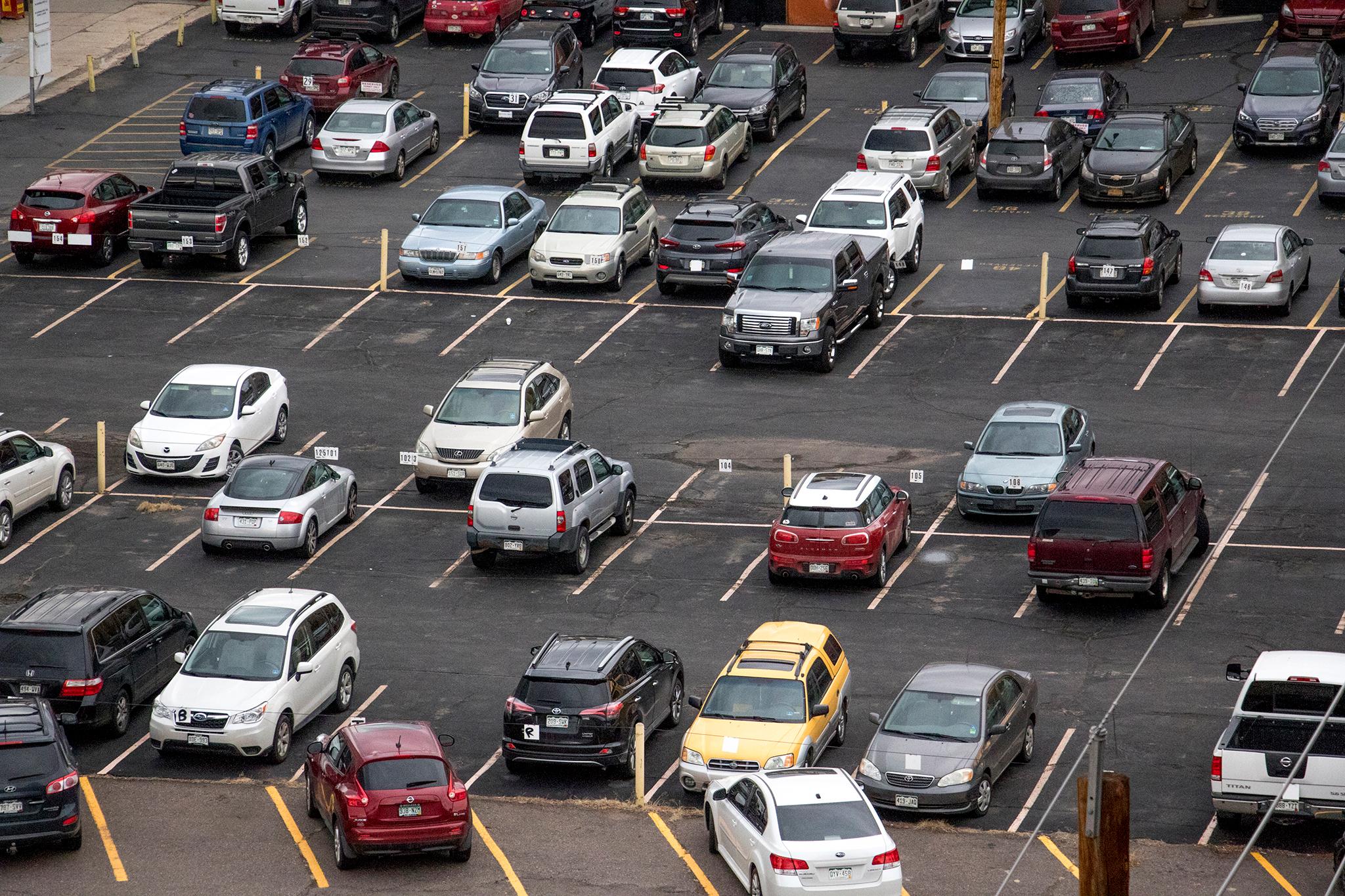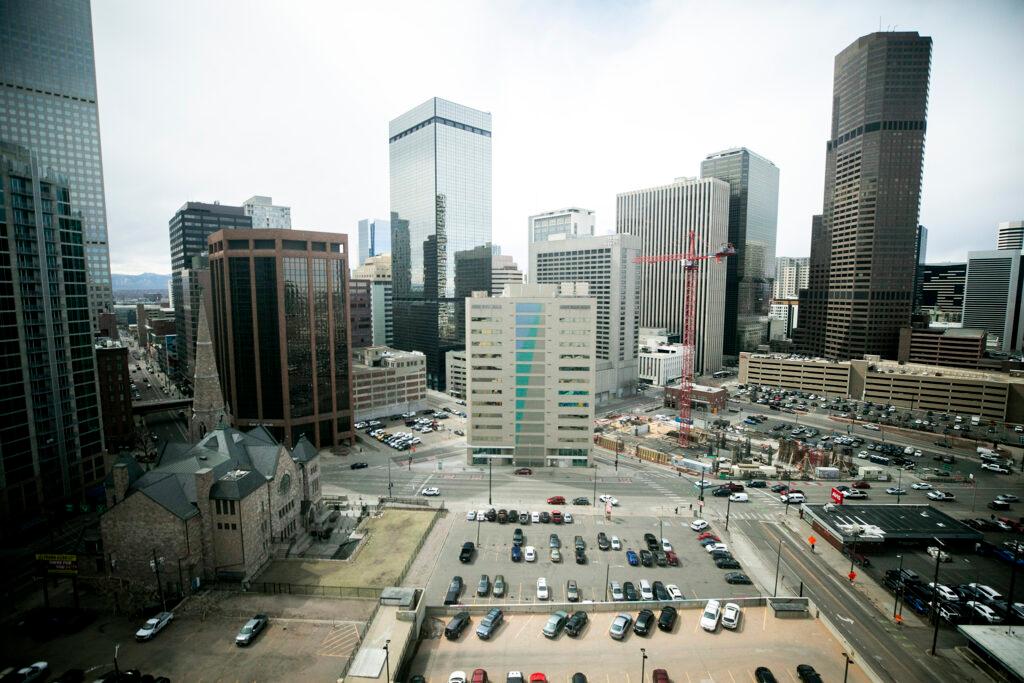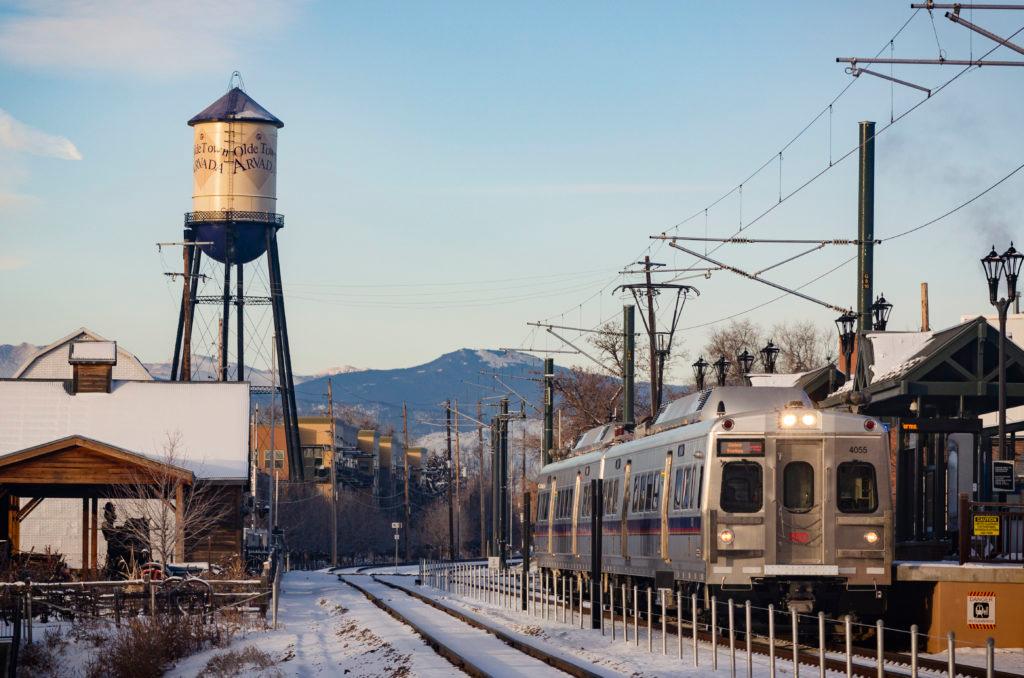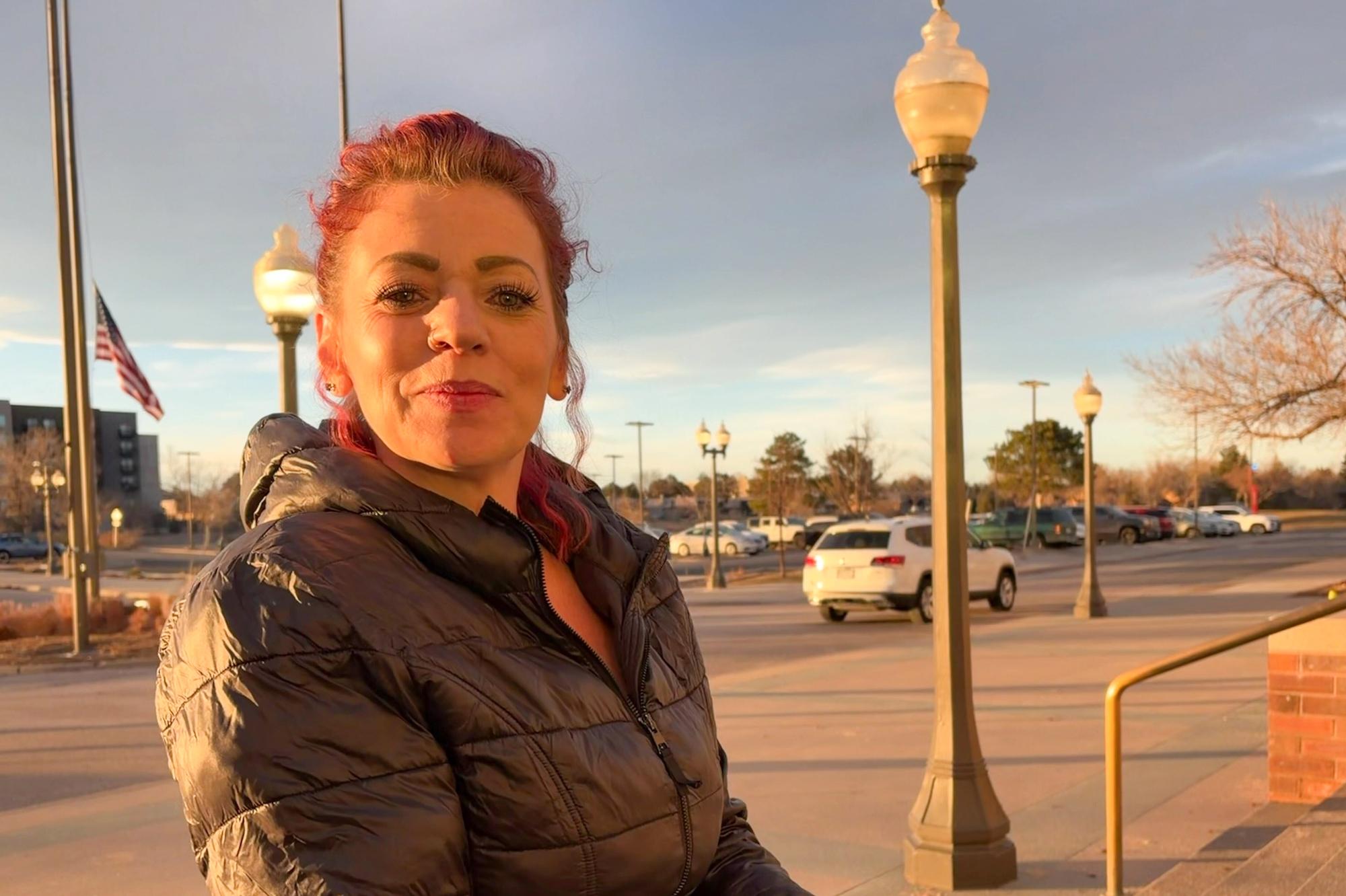
The Colorado legislature has approved one of the most far-reaching parking reform bills in the country.
Local governments across the U.S. have for decades required builders to include off-street parking spaces with new developments. Critics say that practice is a major driver of car-dependent sprawl, high housing costs and seas of underused parking lots.
The bill, HB24-1304, will stop local governments within Colorado’s largest metro areas from enacting and enforcing minimum parking laws for apartments and other multi-family residential projects that are close to relatively high-frequency bus and train lines.
“There’s no such thing as free parking,” Democratic Rep. Stephanie Vigil, a bill sponsor, said in an interview. “It is being paid for somehow. And the way that we have paid for that more than anything is to pave paradise and put up a parking lot.”
Vigil, who represents Colorado Springs, and other supporters say removing parking requirements will make it easier for developers to build more housing units for less money, ultimately making cities more walkable and transit-friendly — and, they hope, more affordable.
The original, sweeping measure passed the House in April relatively intact. The Senate, however, approved the bill over the weekend only after dropping its impact on commercial development and areas outside of transit corridors. Advocates say the amended bill is still one of the most ambitious attempts to reform parking laws in the country.
“It’s still a big deal,” said Tony Jordan, president of the Parking Reform Network, an advocacy and research group that supports efforts to roll back long-standing parking laws.
“I liken it to clearing rocks and weeds out of a space in your yard where you want to have a garden,” he continued. “You can't build a walkable community, you can't build quality transit if you're still basically requiring every land use … to be built in a car-dependent fashion.”
Gov. Jared Polis, who has made housing affordability, climate and transit key priorities in his second term, will sign the parking bill, said his spokeswoman Shelby Wieman.
Opponents of the measure, meanwhile, say the bill will make it harder for working-class people to drive to work. They say it amounts to a state-led attack on cars and the suburban lifestyle personal vehicles enabled over the last century.
“Density is not the answer,” said Dave Kerber, mayor pro tempore of suburban Greenwood Village, who testified against the bill. “And it is very much a philosophical thing where people say, ‘well, we should live in big apartments and tall places,’ and, I think, isolate ourselves. And I'm on the other side. I think we should spread out and have more freedom to breathe.”
Local development regulations have long shaped cities across the state. Only recently have they come under state scrutiny.
Colorado’s oldest cities were initially built for pedestrians and streetcar riders, with homes and businesses packed tightly together. City leaders responded to the explosion of car ownership and resulting traffic in the early 20th century by widening streets.
“In its simplest terms, our difficulty is that we are trying to force too many automobiles through streets adequate to carry the ox-carts, covered wagons and hand barrows of an earlier day, but ill-designed for streams of hurrying motor cars,” the 1929 “Denver Plan” read.
But city planners and local leaders soon realized there was another problem: where to put the cars when they weren’t in use. Old buildings were razed in hollowed-out downtowns to make space for new garages and surface lots.
Planners in Colorado and across the country soon started reconfiguring cities for cars by increasingly relying on a new policy tool: using local ordinances and construction codes to force builders to include off-street parking spaces in new developments. Such rules, in addition to zoning, minimum lot sizes, federally supported highways, and the death of most U.S. streetcar systems, made life in America increasingly suburban and difficult without a car.

Now, some Colorado state lawmakers and Polis have set their sights on local development policies that they believe contribute to high housing costs, low transit use, car dependency, poor air quality, and greenhouse gas emissions from transportation — the state’s largest single source of climate-warming pollutants.
After a sweeping attempt to undermine such local regulations failed last year, lawmakers are tackling them this session in separate bills. One bill nearing the finish line would force some cities to allow more dense housing near transit lines; another would overrule some local governments and legalize accessory dwelling units. Others would fund new transit projects and services.
State Rep. Vigil, one of the parking bill’s sponsors, said she first became interested in the issue after watching urbanist explainer videos on YouTube and TikTok that showed how local parking regulations can fuel sprawl and traffic congestion. She noticed some of those lessons in her own city of Colorado Springs, she said.
“At what point is the city actually for the people who live in it and not for cars that want to drive through it?” she said. “That cycle can't go on forever. At some point, it has to be broken.”
Most local governments and the interest groups that represent them at the Capitol have pushed back against the bills, arguing that decisions about local development are best made by local governments.
Kerber, the Greenwood Village mayor pro tempore, argued that the state’s contribution to climate change is minuscule and claimed the pro-density bills will increase congestion and emissions. Moreover, he said, his city’s regulations have resulted in a community with the right amount of parking for the car-dependent suburb that its leaders and residents want it to be.
“People are fine with it,” Kerber said of the city’s un-walkable design. “It's the choice they make.”
Greenwood Village’s current parking minimums are based on national standards and tailored by local officials, Kerber said. Single-family homes, for example, must have at least three off-street parking spots and apartments must have at least two. Offices need one per 250 square feet of space.
“We don’t just make them up,” Kerber told a Senate committee in April.
Researchers, however, suggest parking minimums are a ‘pseudoscience.’
In an influential book on parking, 2005’s “The High Cost Of Free Parking,” University of California Los Angeles professor Donald Shoup called parking requirements a “pseudoscience.” The national standards, he wrote, had a suburban bias and focus on peak demand — like Black Friday at a mall, for example, even when the lot is never full most of the time.
The building and planning industries have taken notice of Shoup’s work. In 2019, a leader of the trade group that publishes the parking standards referenced by Greenwood Village and many other cities renounced parking minimums and said that governments should eliminate them.
Cities including Minneapolis and Buffalo have done exactly that in recent years. California became the first state to take a wider approach in 2022, with a transit corridor-focused bill similar to Colorado’s.
“I like this bill,” Shoup wrote of the Colorado bill in an email to CPR News.
The bill won’t reshape Colorado cities overnight. But backers hope its impact will be major
The bill will kick in next year. And because development projects can take years to plan, finance and build, the legislation’s impact might be better measured decades from now.
And despite the trims made by the Senate, the bill “could be absolutely huge,” said Matt Frommer, senior transportation associate for the Southwest Energy and Efficiency Project, an advocacy group that supports progressive housing and transportation policies.
Developers of market-rate apartments will likely still build some amount of parking because their lenders will require it, Frommer said. The bill will also allow governments to require some parking for developments with at least 20 housing units and for any affordable housing development if they can show such projects would have a “negative impact” otherwise.

But affordable housing developers say the bill will still open up a lot of new opportunities.
Laura Rossbert, the chief operating officer and a housing specialist at Shopworks Architecture, co-authored a 2021 study that found the firm’s affordable housing developments collectively had hundreds more parking spots than what residents actually used. The cost of those unused spots added up to more than $9 million.
Denver’s recently relaxed parking rules for affordable housing made projects possible that wouldn’t have penciled out financially otherwise, she said. She expects the new bill will do the same across more parts of the state.
“We should build the parking that is needed,” she said. “But I think parking lots are quite ugly and we should instead build gardens or more units with those funds instead of building unnecessary parking spots.”









